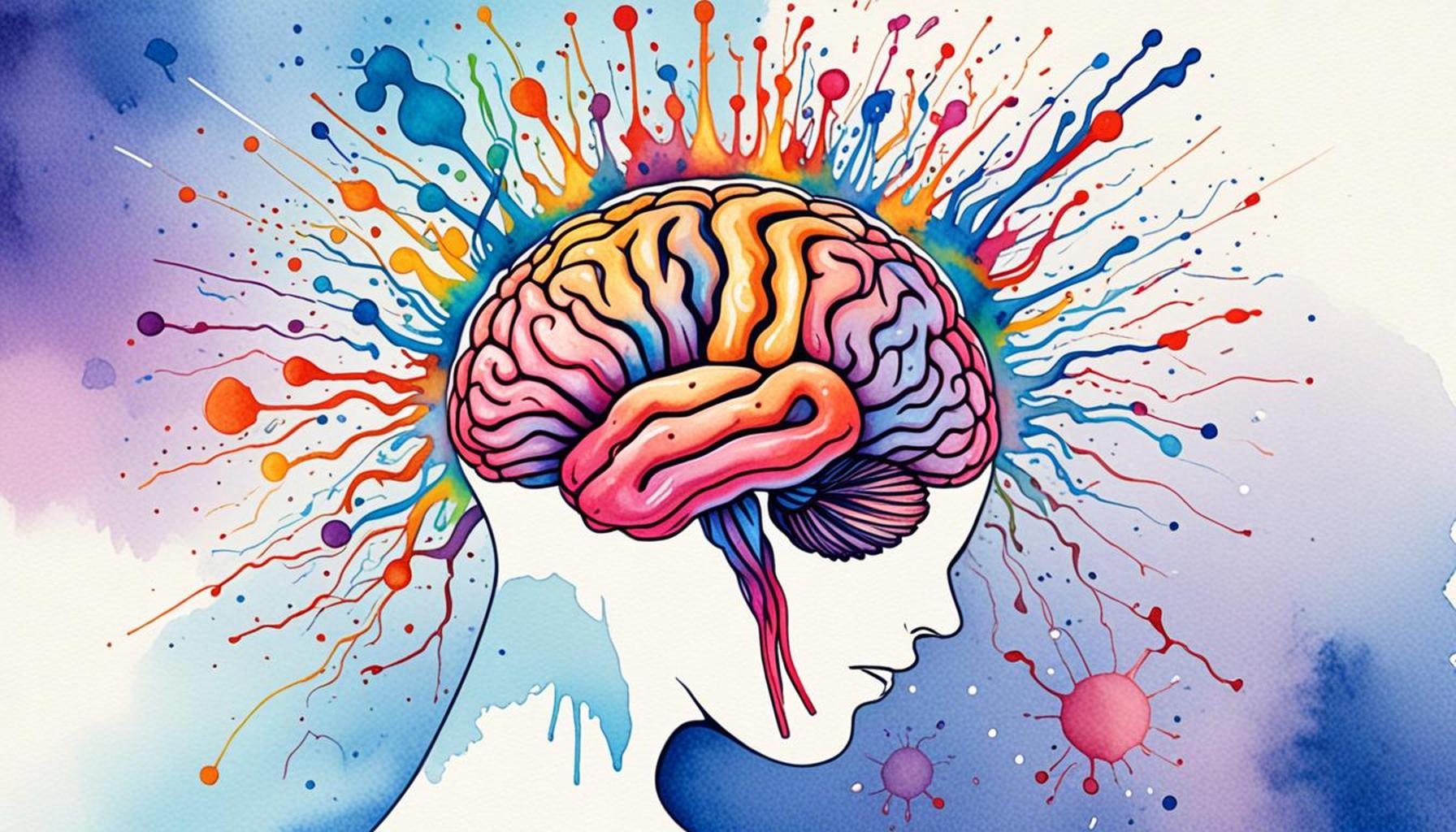Goals and Neuroscience: Understanding How Goal Setting Transforms the Brain

Understanding the Neuroscience of Goal Setting
Every day, individuals in Nigeria and around the world set goals, but have you ever wondered how this process affects your brain? Research in neuroscience reveals fascinating insights into goal setting and its transformative impact on our mental well-being. From students to business professionals, the act of setting and pursuing goals can be a powerful catalyst for change and growth.
Here are some key points to consider:
- Decision-Making: Setting clear goals significantly enhances our ability to make decisions. When we outline specific objectives, our brain processes information more efficiently, eliminating distractions and increasing focus. For instance, a student preparing for university exams in Ibadan may create daily, actionable study goals, making it easier to prioritize subjects and allocate time effectively.
- Motivation: Goals directly trigger the release of dopamine, a neurotransmitter linked to feelings of pleasure and motivation. This neurochemical response can create a positive feedback loop, encouraging further effort toward achieving one’s aspirations. An entrepreneur in Lagos aiming to increase sales may set a goal to introduce a new product line. By visualizing success and anticipating the rewards, they boost their motivation to push through challenges.
- Brain Plasticity: The act of pursuing goals can lead to significant changes in brain structure and function. Research indicates that regular engagement in goal-directed activities enhances synaptic connections, making the brain more adaptable and resilient. This adaptability can be particularly beneficial for youth programs in Nigeria that emphasize skill development, where participants set and achieve personal growth goals.
By understanding these dynamics, you can harness the power of your aspirations. For example, local farmers in regions like Oyo might establish seasonal production targets. These goals not only provide clarity on what to plant and when but also foster community collaboration, sharing best practices based on shared objectives.
This exploration delves into the intricate relationship between goal setting and neuroscience, revealing how our brain processes objectives and the resulting effects on our behavior. Engaging in organized goal-setting enables individuals to channel their energies effectively, which is particularly crucial in a rapidly changing economic landscape. As you navigate the complexities of everyday life, recognizing the science behind goal-setting can motivate you to turn aspirations into reality, impacting not only personal lives but entire communities.
RECOMMENDED: Check out this similar article

The Mechanics of Goal Setting in the Brain
The concept of goal setting is far more than a simple motivational technique; it taps into the complex workings of the brain. Understanding how our neurological pathways interact with the act of setting goals can yield remarkable insights into personal development and achievement.
One of the primary ways that goal setting impacts the brain involves the prefrontal cortex, the region responsible for planning, decision-making, and social behavior. When we define specific objectives, this area of the brain becomes activated, enhancing our ability to think critically about the actions necessary to achieve those goals. For instance, a young entrepreneur in Kano looking to launch a tech startup might use strategic goal setting to map out key milestones—such as securing capital or developing a prototype—enabling clearer thought processes and more effective execution.
- Enhanced Focus: Setting precise, achievable goals narrows our focus. By directing our attention toward specific tasks, we can better ignore irrelevant distractions. This heightened concentration fosters productivity, whether in a bustling Lagos market or a quiet classroom in Enugu.
- Increased Resilience: The brain adjusts to challenges associated with pursuing goals, helping to build resilience. For example, when a student faces academic difficulties but perseveres through structured goals, their brain strengthens its connections over time, making future obstacles easier to tackle.
- Positive Reinforcement: Each time we achieve a goal, our brain experiences a surge of dopamine, which not only rewards our efforts but also further incentivizes us to pursue additional objectives. This principle can be observed in local sports leagues throughout Nigeria, where players set personal performance goals that encourage continual improvement.
Moreover, the concept of neuroplasticity plays a critical role in how goal setting reshapes our brains. Neuroplasticity refers to the brain’s ability to reorganize itself by forming new neural connections throughout life. Engaging regularly in goal-oriented activities can dramatically enhance these connections, leading to improved cognitive flexibility. For instance, initiatives aimed at youth empowerment in Nigeria, such as coding boot camps or agricultural training programs, enable participants to set and achieve learning goals. This not only equips them with new skills but also fortifies their mental agility.
As we dive deeper into the connection between goals and neuroscience, it becomes evident that the power of goal setting goes beyond mere ambition. It is a neurological mechanism that can bolster one’s potential, whether it involves improving personal skills, launching a new enterprise, or uniting a community around common objectives. Understanding these processes may illuminate pathways to success for individuals and groups striving to enhance their circumstances in our dynamic society.
| Category | Explanation |
|---|---|
| Brain Rewiring | Goal setting activates neuroplasticity, enabling the brain to form new connections and pathways. This transformation enhances cognitive adaptability. |
| Motivation Enhancement | Setting clear goals stimulates dopamine release, boosting motivation and overall emotional wellbeing, leading to heightened performance. |
| Focus and Clarity | Specific goals direct attention to essential tasks while minimizing distractions, which can sharpen decision-making processes and increase productivity. |
| Emotional Regulation | Goal accomplishment activates the prefrontal cortex aiding in emotional control and resilience, which is crucial for navigating challenges effectively. |
Understanding the intricate relationship between goal setting and brain function unveils a myriad of previously unexplored aspects. For example, new research has indicated that individuals who consistently apply goal-setting strategies demonstrate improved neural efficiency. This efficiency pertains to how our brains utilize resources while executing tasks associated with those goals. Moreover, the emotional satisfaction derived from achieving these goals can contribute to enhancing one’s overall mental health.These transformations foster not just success in achieving personal aims but also cultivate a profound understanding of one’s mental landscape. An engaging aspect of this relationship is how long-term goal setting can lead to lasting changes in motivation and behavior patterns, further emphasizing the necessity of understanding the neurobiological underpinnings of setting goals. Exploring these intricacies opens a pathway for utilizing neuroscience to optimize personal development and achieve a enhanced quality of life.
LEARN MORE: This related article may interest you
The Impact of Goal Setting on Mental Health and Well-Being
Setting goals does not merely influence cognitive functions; it significantly impacts our mental health and overall well-being. The process of defining and committing to goals can activate a series of emotional responses within the brain that lead to greater life satisfaction and fulfillment.
When we visualize a goal, especially one that resonates with our passions or values, the brain releases neurochemicals like serotonin and dopamine. These chemicals contribute to feelings of happiness and motivation. For example, a Nigerian artist may set a goal of completing a series of paintings for an upcoming exhibition. Visualizing this goal can stimulate the neurochemical reward systems, promoting a sense of joy and excitement in the creative process, which can, in turn, enhance artistic output.
Moreover, achieving smaller milestones along the journey to a larger goal can create a ripple effect on an individual’s emotional state. Each small victory releases further doses of dopamine, reinforcing positive behavior and making future achievements more attainable. Educational initiatives, such as tutoring programs throughout Nigeria, drive this phenomenon profoundly. Students who set and achieve academic goals often report feeling more confident and engaged in their studies, showcasing the direct correlation between goal completion and improved mental outlook.
- Reduction of Anxiety: By breaking down larger, overwhelming goals into smaller, manageable tasks, individuals can alleviate feelings of anxiety. For instance, a small business owner may feel daunted by the process of securing an investor. However, setting incremental goals—like creating a business plan or scheduling meetings—can mitigate pressure and build confidence.
- Promotion of a Growth Mindset: Goal setting cultivates a mindset that embraces challenges and views failures as opportunities for growth. In communities, initiatives aimed at youth mentorship and skill development push young Nigerians to set aspirational goals, encouraging resilience and adaptability in the face of setbacks.
- Enhanced Social Connections: Working toward common goals fosters collaboration and strengthens social bonds. In Nigeria, community service projects or cooperative ventures often arise from collective goal setting, promoting unity and support systems that benefit participants emotionally and mentally.
In the context of achieving personal goals, the practice of regular self-reflection also plays a pivotal role. Reflecting on progress can reinforce the brain’s reward systems, further integrating the importance of goal achievement into one’s self-identity. Many wellness programs in Nigeria, including yoga and meditation workshops, emphasize the power of self-reflection within the goal-setting process, fostering mental clarity and emotional equilibrium.
Additionally, the growing research surrounding the link between goal setting and neuroscience highlights how setting goals can stimulate personal growth by influencing brain function and structure. Everyday practices, such as journaling about aspirations, can enhance self-awareness and clarity, actively reprogramming neural pathways associated with positive thinking and proactive behavior. An excellent example is the rise of local empowerment initiatives that encourage participants to document their aspirations, cultivating a supportive environment that promotes collective success.
The exploration of these neurological and psychological aspects of goal setting reveals a deeper understanding of how the brain reacts to ambition and achievements. As this intriguing field of study unfolds, the implications for individuals and communities throughout Nigeria become strikingly clear, illuminating pathways to enhanced mental fitness and cohesive societal progress.
RECOMMENDED: Check out this similar article
Conclusion: The Transformative Power of Goal Setting
In summary, the relationship between goals and neuroscience unveils a fascinating mechanism that transcends mere ambition, altering the brain’s structure and influencing our mental well-being. The act of setting and pursuing goals ignites neurological processes that orchestrate emotional and cognitive transformations. The release of neurotransmitters such as dopamine not only enhances motivation but also fortifies mental resilience, fostering a sense of joy with every milestone achieved.
As we explore the implications of goal setting, it becomes apparent that this practice serves as more than just a personal endeavor; it is a catalyst for community engagement and social cohesion. Initiatives across Nigeria, from educational pursuits to collective development projects, demonstrate how shared aspirations can unite individuals towards common objectives, enriching both personal lives and the broader society.
Furthermore, the incorporation of goal setting into daily routines can effectively combat challenges such as anxiety and stress. By breaking down aspirations into bite-sized tasks, individuals can cultivate a proactive mindset, embracing failures as stepping stones to growth rather than setbacks. This proactive approach promotes continual learning and adaptation, especially among the youth, who are particularly influenced by mentorship and peer discussions about ambitions.
As the research surrounding the interplay of goals and neuroscience evolves, it reveals promising avenues for leveraging goal-oriented strategies in personal development and community upliftment. Recognizing the brain’s remarkable capacity for change empowers us to harness the potential of goal setting as a transformative tool for mental health and societal progress. Continued exploration in this domain could lead to innovative practices that foster both individual fulfillment and collective thriving across Nigeria.



